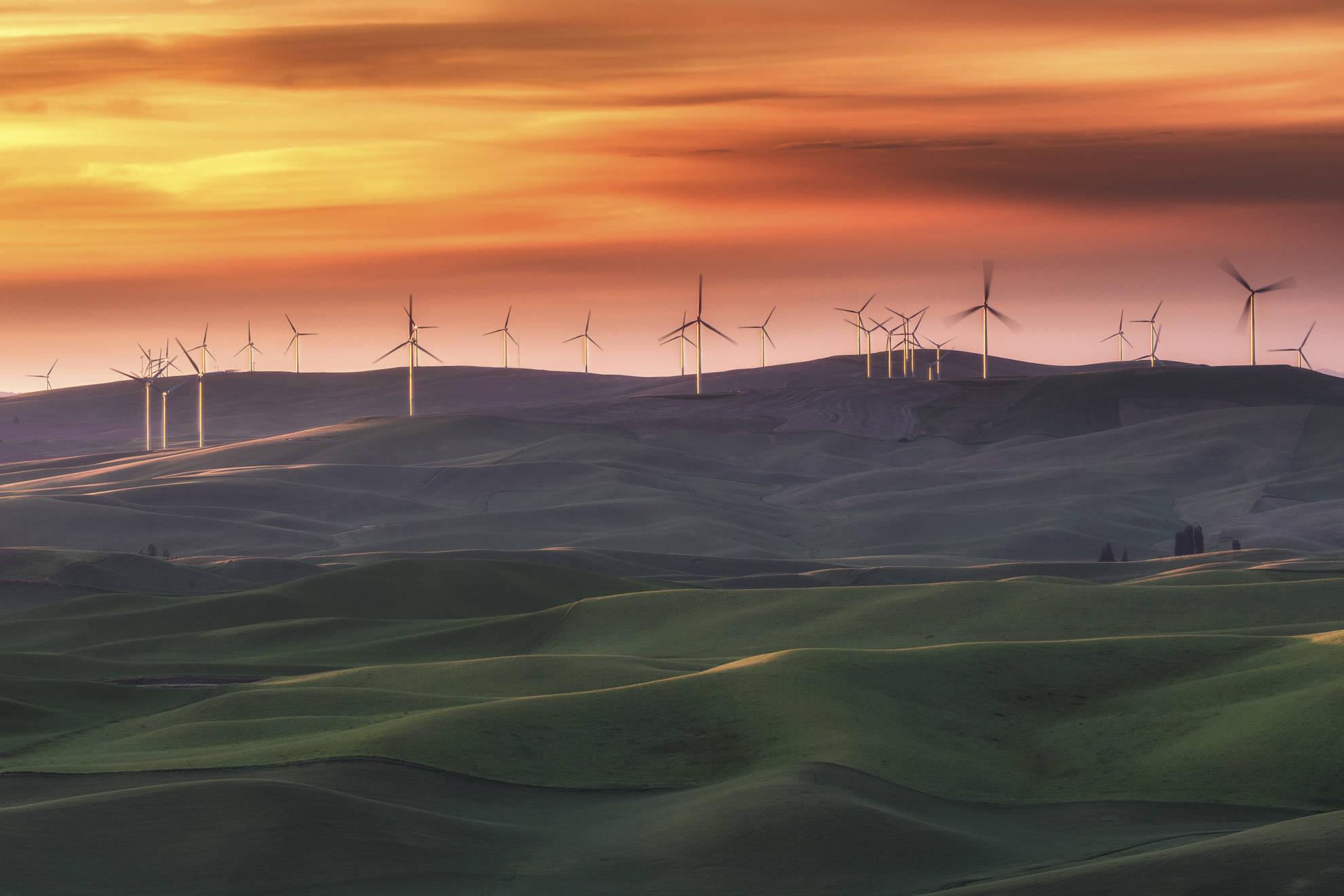On Tuesday, President Donald Trump, flanked by coal miners, signed what at least one local environmentalist has called the “Executive Order of Doom” — a gigantic attack on efforts to mitigate climate change (or to destroy jobs, depending on whom you ask).
The new order attempts to “cancel job-killing regulations,” as Trump put it, by repealing former President Barack Obama’s Clean Power Plan, lifting a moratorium on coal mining on federal and tribal lands, erasing a 2016 EPA regulation limiting methane emissions from the oil and gas industry, and eliminating a slew of Obama-era climate change policies such as the requirement that the federal government consider climate change when evaluating environmental permits and that it reduce its own greenhouse gas emissions by 40 percent.
“We have a very impressive group here to celebrate the start of a new era in American energy and production and job creation,” Trump said, to a round of gentle applause. He called the Clean Power Plan, still frozen in the courts thanks to state-led lawsuits, a “crushing attack on American industry.” To the workers by his side — “our incredible coal miners” — he said, “C’mon guys… You know what this says? You’re going back to work.”
It’s a promise that some doubt Trump can keep, as natural gas prices have arguably had a far stronger effect on the collapse of U.S. coal than environmental regulation.
But in any case—you guessed it—the other Washington is utterly unfazed by this news. “Washington state remains wholly committed to doing our part,” Gov. Jay Inslee said in a statement released Tuesday. “President Trump’s decision to ax the Clean Power Plan cedes U.S. global leadership and increases the risk that climate change will continue to damage our state. We can’t afford to slow our efforts, and we won’t.”
Inslee joined Seattle mayor Ed Murray, the governors of California and Oregon, and the mayors of Portland, San Francisco, Oakland, and Los Angeles in a similar statement issued last week, intended specifically to rebut Trump’s economic arguments. “We speak as a region of over 50 million people with a combined GDP of $2.8 trillion,” the statement reads, in part. “There is no question that to act on climate is to act in our best economic interests.”
The renewable energy industry, for example, not only exists (contrary to federal rhetoric), but is growing fast — especially in the West. If you do the math based on U.S. Energy and Jobs report data from 2017, Washington state employs over 74,000 people in wind, solar, energy efficiency, and other, climate-forward energy industries, significantly more than in fossil fuels. And, across the country, renewable energy jobs now outnumber fossil fuel jobs five to one.
Tuesday’s executive order is “certainly disappointing,” says Cesia Kearns, deputy regional campaign director of the Sierra Club’s Beyond Coal campaign. But at the local level, “We are still on track to meeting the Clean Power Plan’s goals,” she says. That’s in part because Washington has long relied on hydropower (more than 70 percent of its electricity comes from water), and in part because its own climate emissions goals are stricter than federal ones.
“We get it pretty easy, since we’re so hydro-heavy,” adds the Sierra Club’s Caleb Heeringa, so “most of these targets are easy for us to meet.” But, he says, “that doesn’t mean that we shouldn’t try harder than the federal government wants us to.”
And we do—the state Clean Air Rule being one example, which covers the entire economy, not just the energy sector. Still, there are a couple of hurdles left when it comes to meeting our own goals for ourselves.
First off, although some people, particularly young people, don’t think the Clean Air Rule does nearly enough to mitigate climate change, others think it’s too restrictive: Some of Washington’s largest natural gas utilities, including Puget Sound Energy (PSE), are currently suing the state over that rule.
And while PSE is moving its assets away from coal—it agreed last summer to officially retire two of the oldest, dirtiest units of a coal-fired power plant in Montana that it co-owns—the natural gas industry may still thrive here.
Case in point: Also on Tuesday, the state House held a hearing on SB 5439, which would create a huge tax incentive for the TransAlta coal plant in Centralia to be rebuilt as a natural gas plant when it retires in 2025. Sierra Club staffers insist that there is no way Washington can meet its emissions goals if it invests in new natural gas plants. Natural gas does a better job than coal in terms of carbon emissions, but in terms of methane, not so much.
Trump’s speech did offer one olive branch to a left-leaning place like Washington, which, in an interesting political reversal, is now finding itself more likely to champion states’ rights. Tuesday’s executive order, Trump said, is about “returning power to the states. States and local communities know what’s best for them. They understand it. They get it. They’ve been doing it for a long time.”
While he may have been referring to coal and oil-producing states in this instance, Washington’s environmental advocates are likely to agree. Even if rolling back federal regulations means that there’s little chance the U.S. can keep any kind of Paris climate agreement promises, Kearns says she’s still hopeful. Places like Washington “have such a wonderful opportunity to show our international counterparts… that not everyone agrees with what the [Trump] administration is doing.”
sbernard@seattleweekly.com








